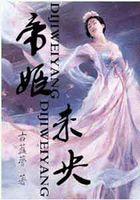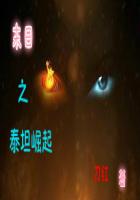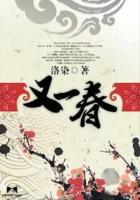Almost as clearly as the sun could, the moon's still pale light picked out vast sweeping stretches of distance, the grass shimmering and rippling like a restless sigh, silver and white and grey. Leaves on trees sparkled suddenly like points of fire when the wind turned their glossy tops upward, and great yawning gulfs of shadows spread under timber stands as mysteriously as mouths of the underworld. Lifting her head, she tried to count the stars and could not; as delicate as drops of dew on a wheeling spider's web the pinpoints flared, went out, flared, went out, in a rhythm as timeless as God. They seemed to hang over her like a net, so beautiful, so very silent, so watchful and searching of the soul, like jewel eyes of insects turned brilliant in a spotlight, blind as to expression and infinite as to seeing power. The only sounds were the wind hot in the grass, hissing trees, an occasional clank from the cooling Rolls, and a sleepy bird somewhere close complaining because they had broken its rest; the sole smell the fragrant, indefinable scent of the bush.
Luke turned his back on the night, pulled out his tobacco pouch and booklet of rice papers, and began to roll himself a cigarette. "Were you born out here, Meghann?" he asked, rubbing the strands of leaf back and forth in his palm, lazily.
"No, I was born in New Zealand. We came to Drogheda thirteen years ago." He slipped the shaped tendrils into their paper sheath, twiddled it expertly between thumb and forefinger, then licked it shut, poked a few wisps back inside the tube with a match end, struck the match and lit up. "You enjoyed yourself tonight, didn't you?"
"Oh, yes!"
"I'd like to take you to all the dances."
"Thank you."
He fell silent again, smoking quietly and looking back across the roof of the Rolls at the stand of timber where the irate bird still twittered querulously. When only a small remnant of the tube sputtered between his stained fingers he dropped it on the ground and screwed his boot heel viciously down upon it until he was sure it was out. No one kills a cigarette as dead as an Australian bushman.
Sighing, Meggie turned from the moon vista, and he helped her to the car. He was far too wise to kiss her at this early stage, because he intended to marry her if he could; let her want to be kissed, first. But there were other dances, as the summer wore on and wore itself down in bloody, dusty spendor; gradually the homestead got used to the fact that Meggie had found herself a very good-looking boyfriend. Her brothers forbore to tease, for they loved her and liked him well enough. Luke O'neill was the hardest worker they had ever employed; no better recommendation than that existed. At heart more working class than squatter class, it never occurred to the Cleary men to judge him by his lack of possessions. Fee, who might have weighed him in a more selective balance, didn't care sufficiently to do so. Anyway, Luke's calm assumption that he was different from your average stockman bore fruit; because of it, he was treated more like one of themselves.
It became his custom to call up the track at the big house when he was in at night and not out in the paddocks; after a while Bob declared it was silly for him to eat alone when there was plenty on the Cleary table, so he ate with them. After that it seemed rather senseless to send him a mile down the track to sleep when he was nice enough to want to stay talking to Meggie until late, so he was bidden to move into one of the small guesthouses out behind the big house.
By this time Meggie thought about him a great deal, and not as disparagingly as she had at first, always comparing him to Father Ralph. The old sore was healing. After a while she forgot that Father Ralph had smiled so with the same mouth, while Luke smiled thus, that Father Ralph's vivid blue eyes had had a distant stillness to them while Luke's glittered with restless passion. She was young and she had never quite got to savor love, if for a moment or two she had tasted it. She wanted to roll it round on her tongue, get the bou- quet of it into her lungs, spin it dizzying to her brain. Father Ralph was Bishop Ralph; he would never, never come back to her. He had sold her for thirteen million pieces of silver, and it rankled. If he hadn't used the phrase that night by the borehead she would not have wondered, but he had used it, and countless were the nights since when she had lain puzzling as to what he could possibly have meant.
And her hands itched with the feel of Luke's back when he held her close in a dance; she was stirred by him, his touch, his crisp vitality. Oh, she never felt that dark liquid fire in her bones for him, she never thought that if she didn't see him again she would wither and dry up, she never twitched and trembled because he looked at her. But she had grown to know men like Enoch Davies, Liam O'Rourke, Alastair MacQueen better as Luke squired her to more and more of the district affairs, and none of them moved her the way Luke O'neill did. If they were tall enough to oblige her to look up, they would turn out not to have Luke's eyes, or if they had the same sort of eyes, they wouldn't have his hair. Something was always lacking which wasn't lacking in Luke, though just what it was Luke possessed she didn't know. Aside from the fact that he reminded her of Father Ralph, that is, and she refused to admit her attraction had no better basis than that.















